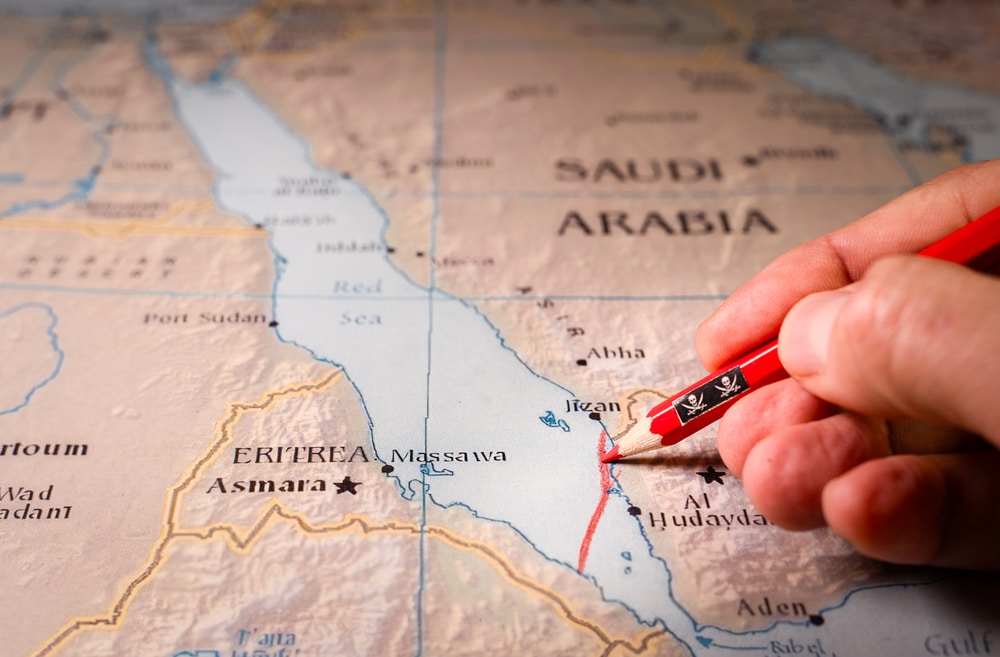For the last several weeks, the country of Yemen and their Houthi government have been in the news far more than they were during their war with Saudi Arabia. This is because the Houthis began to attack ships in the Red Sea, a frustrated reaction to the United States’ role in the war in Gaza. The United States has responded by repeatedly bombing the country in Yemen.
The decision to bomb was met with support from politicians like Mitch McConnell and Roger Wicker, and commentators like Ben Shapiro, while others like Mike Lee, Thomas Massie, and Rand Paul have questioned it. Some call it overdue while others argue that it was unconstitutional.
Regardless whether it is constitutional or not, the decision to bomb was always going to backfire on the United States.
For starters, the Houthis welcomed an armed conflict against Washington. They want to prove themselves as a powerful regional player. Houthi leader Abdul-Malik al-Houthi declared, “We, the Yemeni people, are not among those who are afraid of the America. We are comfortable with a direct confrontation with the Americans.”
Despite this message, Joe Biden went ahead and started dropping bombs on them to make them stop attacking ships in the Red Sea. Since January 12, the United States has carried 21 rounds of airstrikes, according to David DeCamp.
Knowing this, it should be of little surprise to hear that the Houthis continued their attacks in the Red Sea. Three days after the initial wave of airstrikes, the Houthis responded by striking an American civilian owned ship. The Houthis recently attacked a ship bound for Iran, detecting that it came from the United States.
As long as the bombing continues, it also has disastrous effects on the people of Yemen. For nearly nine years, the country has been wrecked by a war between the Houthis and Saudi Arabia. The situation is dire in the country, with over 377,000 civilians having died either from the bombs dropped or from lack of food or healthcare. As of today, half the population is at risk of dying from starvation or lack of healthcare.
Due to the situation and the cost for Saudi Arabia, the two sides have begun talking about a peace deal. They even agreed to one and were going to allow the blockade to be eased. However, this peace deal did not come to fruition.
It was reported on February 6 that the United States killed the peace deal between the two sides. The decision to re-designate the Houthis as “Specially Designated Global Terrorists” will block the payment of public sector workers, who have not been paid in years. Thanks to new sanctions the United States placed on the Houthis, fully opening their airports and seaports will be extremely complicated to say the least. All this does is further the humanitarian crisis in the country that the United States helped produce.
Biden had an opportunity to make peace in the region when Senator Bernie Sanders was going to force a vote in the Senate that would withdraw the United States from the war in December 2022. However, Biden pressured Sanders to withdraw his war power resolution since the president would have vetoed it.
While Biden has pursued disastrous foreign policy in Yemen, it’s not completely unfixable. A solution to the Houthi problem would be a ceasefire in Gaza.
As mentioned earlier, the Houthis began to launch strikes because of the situation in Gaza. The Houthis have stood with Palestinians throughout the war and have been launching strikes in aims to facilitate the entry of humanitarian aid in the Gaza Strip.
While the United States continues to back Israel in hopes that a military solution will emerge, it is unlikely that it will occur, as Phyllis Bennis notes:
“But the notion that there is an effective military solution to the issue is a fantasy. What is required is serious diplomacy that starts by recognizing the fact that both Israel’s war on Gaza and U.S. support for that war are generating outrage across the Middle East—and some of that rage is turning into acts of retaliatory violence in Yemen and the Red Sea, as well as in Iraq and Syria where U.S. troops remain deployed. This diplomacy needs to start with a call for an immediate cease-fire to stop the slaughter in Gaza.”
Not only would a cease-fire stop the strikes from the Houthis, but it would also see an end to Israel’s slaughter in Gaza. Furthermore, letting peace prevail in Yemen would save hundreds of thousands of lives.
There is no reason why war should go on when peace is a viable option. End the suffering of both Yemen and Gaza.































